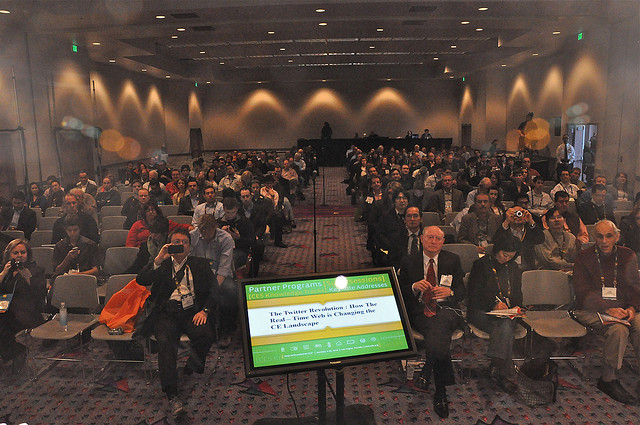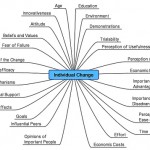If it doesn’t challenge you, it doesn’t change you. – Fred DeVito

They’re watching you. Can you do it? Are you up to the challenge? How will Public Speaking change you?
What does that mean?
To me, this is saying that if a situation is so normal that it offers you no challenge at all, it isn’t able to change you in any way, shape or form.
Stated another way, challenges are what change us and help us improve. If a situation can’t do the first part, it won’t be able to do the latter.
We humans grow thrive on challenges. Some prefer smaller challenges, and others aren’t satisfied until they climb the highest mountain.
But with the challenge comes change. Whether it’s discovering a new ability or learning a limitation of ability, we are changed.
Why is undertaking a challenge important?
If challenges change us, the only reason not to undertake a challenge is if we feel we are already as good as we want or need to be in that part of our lives. Even then, sometimes the most important insights in our lives are discovered while doing things completely unrelated to the challenge at hand.
So challenges are part of how we grow, how we improve. If you want to learn something new, it is, by definition a challenge. The reward is how the new information helps you change and become more. If it is a challenge to improve an existing skill, the reward is a change for the better that skill set.
Conversely, a life without challenges would be, at the least, quite boring. I’m not saying that we need to do wild and crazy challenges every day, but doing nothing challenging is really boring. While some may have a high tolerance for boredom, eventually everyone will want something more.
The only questions then become: When will you insist on doing something more? And: How much more do you need? We will each answer these questions in a different manner, and that is appropriate. Even the same person might give different answers for different topics or at different times.
Where can I apply this in my life?
I’ve been feeling a bit bored lately, so I have taken up a couple of challenges. Restarting the blog was one of them. I am also in the process of removing or reducing a lot of the clutter in the garage and in other parts of the house. I am also learning how to write apps for Apple devices.
Why would I do all that? Mostly because I’m bored. I have a minor compulsion to improve, to test, to seek my limits. I live to grow, to become more, to do more. It’s just how I’m wired. I can’t sit still for too long, and it had been too long. And cleaning out the garage allows for other challenges to resume.
Take a moment and consider your life. What are you not doing because you don’t think you are up to the challenge? What could you do if you were to face the challenge and try? If your desire is to go to the moon, that may be a bigger challenge than can be easily handled. But you can make yourself ready to go.
On the other hand, some people have very precise and serious limits. At one point, I had a stutter and was severely dyslexic. While I am not ‘cured’, I challenged myself to take a public speaking class and learned how to deal with some of my problems, and minimize the others. I changed, I grew.
Everyone has a mountain to climb, and they all look huge to the person standing at the base looking up. You may look over and laugh at their fright of their mountain, as many did about my issues with public speaking. But for me, it was an insurmountable obstacle, just as anyone else’s mountain is to them.
Take a moment and consider some of your bigger challenges. How would your life change if you were to take them? First there’s the determination to face them in the first place. How much would you change just facing them? What about attempting them? Even if you don’t get where you hoped, what will you learn about yourself in the process?
Now consider a few of your smaller challenges. How would your life change if you went ahead and faced them? How much time and effort would it require, and how would you change for having attempted them? Again, even if some don’t turn out how you wished, what would you learn? How would you change? Could you learn enough to do better on a re-try?
We all face challenges in our lives. If we avoid them, we don’t change, we don’t grow. Not every challenge has to be taken, and there probably isn’t enough time to try them all, but if we pick and choose which to attempt, we can learn a lot about life and about ourselves.
The only question remaining at the moment are which challenges we will accept, and when we will take them? And, of course, what will we learn from the experience?
From: Twitter, @lronGuts
confirmed at : www.goodreads.com As usual, a difficult citation to find – anyone?
photo by Dave Taylor







Got the quote from BrainyQuote’s IFTTT action (https://ifttt.com/recipes/208758-email-me-a-famous-quote-every-day), so not really sure what the context is.
But I believe the quote means:
It is human nature to sometimes act out of instinct (so can go wrong) and other times one thinks well and acts wisely.
Thanks for doing the research and leaving a comment about it here.
I should have been more specific about where I was looking for citations. BrainyQuote and many others simply state a quote and leave it at that. Sadly, there isn’t any checking of facts, and they are often wrong in their assertion of authorship of quotes. I’m hoping to find in which book or work the specific quote can be found. Thanks for the effort, though.
As for what it really means, that’s what makes this blog so much fun. Most of these quotes can be taken any number of ways, and no one is necessarily right or wrong. We may differ, but unless the author of the quote is alive and willing to correct one or more of the viewpoints, we can all take it in a way that works for us. I can see how you might come to the conclusion you did, please understand that I’m not trying to minimize your viewpoint. I just have a different one.
Again, thanks for the lead, and for taking the time to join the conversation.
Can you do a post on this quote: “At times I think and at times I am.” – Paul Valery
I would love to, but need some help. The quote, in isolation, could mean anything. I have yet to find it included in context, that I might better understand what he meant by it. With attributes like “Poet” and “Philosopher”, to wade in without context would be to take a huge risk.
I’d be happy to try it, if you can find me some context. That said, it appears that French is his native language, and it may be a liberal translation from the original quote. Can you help me?